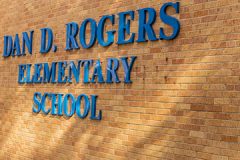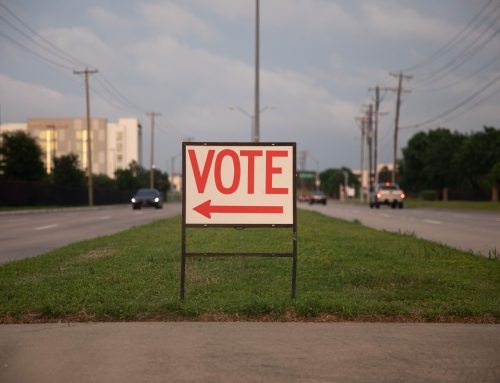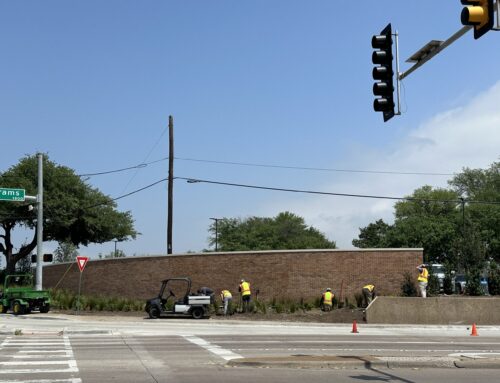
(Photo by Danny Fulgencio)
Dan D. Rogers Elementary was the first Dallas ISD campus to make deep breathing exercises a part of its curriculum.
Rogers introduced social emotional learning to students at the beginning of the 2016-2017 school year. Students participated in Our Mind Time, a 16-week program that integrated concepts such as emotional awareness and social skills into their daily lessons.
The efforts of the personalized learning campus haven’t gone unnoticed. Rogers received the American Psychological Association’s Golden Psi Award, an honor given to schools whose research-based practices positively impact student growth.
“It gives me a feeling of validation I was on the right track,” says school counselor Jeanne Juneau, who launched the SEL program. “I felt really strongly about this at the beginning of the year. … It further validates we did OK. We’re going in the right direction.
The Chicago-based Collaborative for Academic, Social and Emotional Learning (CASEL) is widely considered the godfather of SEL, an education trend that emphasizes teaching the “whole child.”According to CASEL, there are five components: self-awareness, self-management, social awareness, relationship skills and responsible decision-making.
“We all know that there is a lot more to academic achievement than just reading, writing and arithmetic,” Annie Wright, the director of Evaluation for SMU’s Center on Research and Evaluation, told the Advocate in 2016. Social-emotional learning is “all the underlying mental and emotional health that really rounds out the well-being of any student.”
The program has particularly benefitted students with attention-deficit hyperactivity disorder and other similar conditions, Lovato says.
“Someone is finally teaching them the skills to self-regulate and calm down, where we might’ve struggled before and didn’t know how to deal with it,” she says. “Now we’re giving them the tools to overcome.”
SEL has helped students develop coping skills and improve classroom behavior, but it hasn’t eliminated students’ behavioral problems, Lovato says. Rogers is one of two schools in the Hillcrest feeder pattern selected for additional SEL training because of the school’s suspension rate.
“It’s a great thing to get support in areas that we’re still struggling,” she says.
Next year’s agenda incorporates independent problem-solving, conflict resolution and valuing others’ differences, Lovato and Juneau say.
“We’ve got the emotional part. Now we want to work on the social part,” Juneau says. “You don’t learn social skills from staring at a computer screen all day.”





